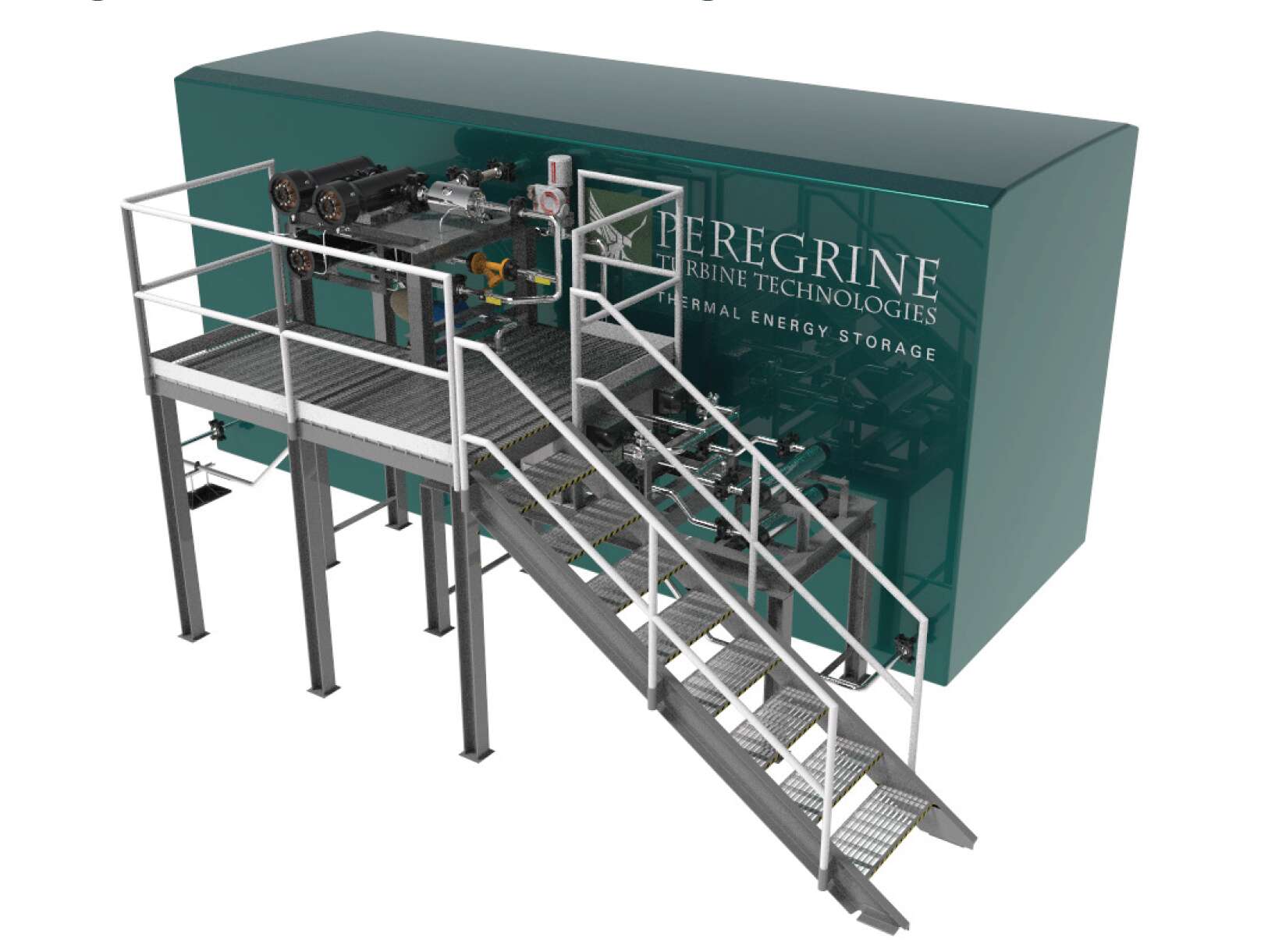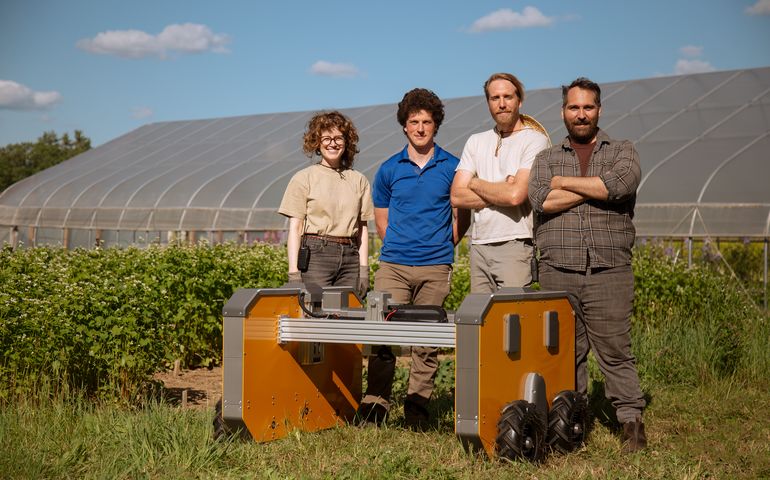
Innovators of farming robots and renewable power win clean energy competition
 Courtesy / Farmhand Automation
Farmhand Automation, in Biddeford, is developing low-cost electric farming robots to help farmers reduce their carbon footprint.
Courtesy / Farmhand Automation
Farmhand Automation, in Biddeford, is developing low-cost electric farming robots to help farmers reduce their carbon footprint.
Startups in Biddeford and Wiscasset engaged in developing clean energy technology have each been awarded $250,000 through the Maine Clean Energy Innovation Challenge, a joint initiative of the Maine Technology Institute and the Governor’s Energy Office.
Farmhand Automation of Biddeford is developing technology to help farmers reduce their carbon footprint.
Peregrine Turbine Technologies of Wiscasset is advancing renewable power storage technology.
"This innovation challenge was an opportunity for MTI to take an active role in helping to identify promising and innovative technologies to help address the climate and clean energy goals of the state,” Brian Whitney, MTI’s president, said in a news release. “And it’s a model that we can continue to replicate to help catalyze other sectors in our state.”
Automated farming
Farmhand Automation is developing low-cost electric farming robots to help farmers transition to a carbon-free future. Its electric technology has target applications in automated crop management for healthy soils and carbon negative farming, as well as increased soil biodiversity and production output. The autonomous platform is also designed specifically to help rural local farms scale operations to address growing food security pressures posed by climate change.
Power storage
Peregrine Turbine Technologies is developing turbine engine technology to store renewable power from solar and wind and make it available as power sources at any time of night or day. Paired with thermal energy storage technology developed in Australia, the engines are considered a more efficient and environmentally friendly storage solution than lithium-ion batteries.

The company announced in July that it plans a commercial pilot of its technology at a solar field in Pittsfield in 2022.
Clean energy jobs
Announced on Earth Day 2021 by Gov. Janet Mills, the Maine Clean Energy Innovation Challenge was created to support companies with products or technologies that reduce carbon emissions, increase renewable energy, and grow Maine’s clean energy economy.
Mills has set a goal of doubling Maine’s clean energy jobs to 30,000 by 2030.
“Innovative companies across Maine are leading the transition to a clean energy future,” said Mills. “Farmhand Automation and Peregrine Turbine exemplify the ingenuity Maine needs to diversify our economy, create good-paying green-collar jobs, and combat climate change.”
The challenge is part of the Mills Administration’s actions to spur and support innovation, startups and entrepreneurs in Maine, as recommended by the state’s 10-year economic development strategy, the findings of the governor’s economic recovery committee and Maine’s four-year climate plan, called Maine Won’t Wait.
Maine’s investment in research and development, a key driver of economic growth, has ranked among the lowest in the nation. Maine also has among the fewest clean energy jobs per capita in New England, behind Massachusetts, Vermont and Rhode Island, where clean energy jobs are among the highest per capita in the country.
Grow clean energy economy
In addition to the innovation challenge, the Mills Administration is developing programs to grow the state’s clean energy economy by utilizing federal funding under the Maine Jobs & Recovery Plan to support the governor’s 30,000 clean energy jobs by 2030 target.
The challenge is the second joint effort with MTI and the Mills Administration this year on clean energy innovation. Earlier this year, they partnered with the energy and environmental economic development nonprofit E2 Tech to prompt Maine clean energy start-ups to enter the Cleantech Open, a national accelerator program.
The innovation challenge is also the second such industry effort recently initiated by MTI. In 2019, a successful pilot program focused on the forest products industry invested $1.5 million to advance two natural resource-based technologies in Maine.
Applications for the challenge were solicited by MTI from May 14 to June 18. Responders were expected to submit information to describe their proposed project and how it meets the challenge guidelines, history and track record, market assessment and commercial viability, value proposition, project duration and timeline, and economic impact.
Responses were evaluated for those same criteria by MTI’s subject matter experts on its Environmental Technology Board and, as a condition of the awards, both recipients must demonstrate a minimum of one-to-one matching funding to the challenge grant, consistent with all MTI awards.













0 Comments